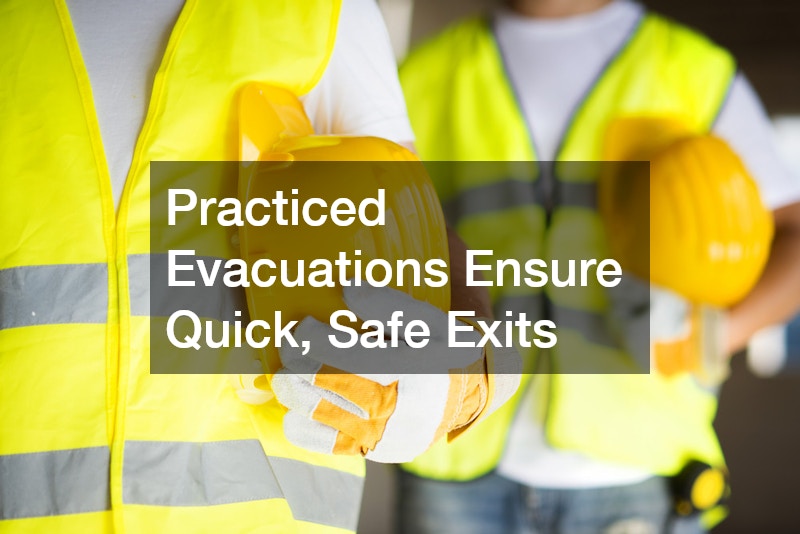In the world of construction and development, excavation companies play a critical role in laying the groundwork—literally—for projects to move forward. Utilizing advanced techniques and technologies, these companies must prioritize site safety and adhere to stringent compliance regulations to ensure that their operations are accident-free and lawful. This article explores how excavation companies achieve these goals by answering some of the most frequently asked questions about site safety and compliance.
What Are the Key Safety Measures Implemented by Excavation Companies?
Risk Assessment and Management
Excavation companies begin their projects by conducting thorough risk assessments to identify potential hazards such as unstable soil conditions or utility line locations. By mapping out these risks, companies can develop strategic plans to mitigate dangers before any excavation work begins.
Beyond initial assessments, continuous risk management is crucial to address unexpected challenges. By regularly updating safety protocols, companies ensure both immediate and long-term safety solutions.
Advanced software tools are often used to simulate potential hazards, helping teams visualize and prepare for worst-case scenarios. These simulations enable more precise and effective risk management strategies.
Employee Training and Certification
Excavation companies invest heavily in training programs to enhance their employees’ skills and understanding of safety procedures. Certification requirements further ensure that all workers are knowledgeable about safety protocols and industry standards.
Regular refresher courses help workers stay updated on new safety measures and equipment handling techniques. This ongoing education fosters a culture of safety and compliance, crucial for a hazard-free work environment.
In addition to formal training, mentorship programs provide new employees with on-the-ground experience under the guidance of seasoned professionals. This combination of theory and practice ensures comprehensive safety preparedness.
How Do Excavation Companies Ensure Compliance with Legal Regulations?
Adhering to Federal and Local Laws
Excavation companies must navigate a complex web of federal and local regulations to stay compliant. These laws cover various aspects, including zoning, environmental protection, and worker safety.
To manage these diverse regulatory demands, companies often employ compliance officers who specialize in legal adherence. This ensures that every project operates within the legal frameworks set by governing bodies.
Compliance is further reinforced by engaging with legal experts who provide insights into any regulatory changes. Adapting to these changes promptly minimizes the risk of legal infractions and project delays.
Regular Inspections and Documentation
Routine inspections are vital to ensure that excavation projects meet and maintain compliance with all applicable regulations. These inspections help identify and rectify potential non-compliance issues before they escalate.
Proper documentation of inspections and site activities is crucial for accountability and record-keeping. Detailed records not only demonstrate compliance but also protect companies in case of legal disputes.
A robust documentation process often involves digital tools that streamline the recording and retrieval of compliance information. This efficiency allows for quick audits and enhances transparency with regulatory agencies.
What Technologies are Used to Enhance Site Safety?
Modern Equipment and Machinery
Modern excavation equipment is equipped with advanced safety features such as automatic shut-off systems and proximity sensors. These innovations significantly reduce the likelihood of accidents and equipment failure.
Regular maintenance of machinery ensures these safety features remain in optimal working condition. Preventative care not only enhances safety but also extends the lifespan of equipment.
The integration of GPS technology in machinery aids in precision and accident prevention, especially in complex excavation projects. Enhanced precision minimizes human error and supports safer excavation operations.
Sensors and Real-time Monitoring Systems
Sensors have revolutionized site safety by enabling real-time monitoring of environmental conditions and equipment performance. This allows for immediate action in response to unsafe changes on site.
Data gathered from these sensors is analyzed to predict potential hazards, enabling proactive measures. This predictive capability enhances safety and reduces the risk of unexpected incidents.
Real-time monitoring systems also facilitate communication between on-site workers and remote safety teams. This ensures that any safety concerns are addressed swiftly and efficiently, reducing downtime and risk.
How is Emergency Preparedness Managed on Excavation Sites?
Emergency Response Planning
Comprehensive emergency response plans are crucial for managing unexpected incidents on excavation sites. These plans outline clear procedures and designate responsibilities to ensure swift action.
Regular drills and exercises are conducted to test the effectiveness of emergency plans and improve response times. These practice scenarios help workers feel confident and prepared should an actual emergency occur.
Collaboration with local emergency services ensures that site-specific challenges are considered in response plans. This partnership enhances the speed and effectiveness of rescue operations.
On-site Emergency Equipment and Procedures
Excavation sites are equipped with essential emergency equipment such as first-aid kits, fire extinguishers, and rescue tools. The availability of these resources is critical for managing minor and major emergencies.
Employees are trained on the correct use and maintenance of emergency equipment, ensuring readiness in critical situations. Familiarity with emergency tools can significantly improve the outcome of an urgent response.
Clear and practiced evacuation procedures ensure that all site personnel can leave the area quickly and safely if required. Regular updates and briefings keep everyone informed about the most efficient escape routes and safety measures.
Site safety and compliance are non-negotiable facets of an excavation company, influencing a company’s reputation and legal standing. By implementing robust safety measures, adhering to regulations, leveraging technology, and preparing for emergencies, excavation companies set the foundation not only for their projects but also for the safety and well-being of their workers and the surrounding community. Continuous improvement and vigilant compliance remain the cornerstones of any successful excavation operation.




